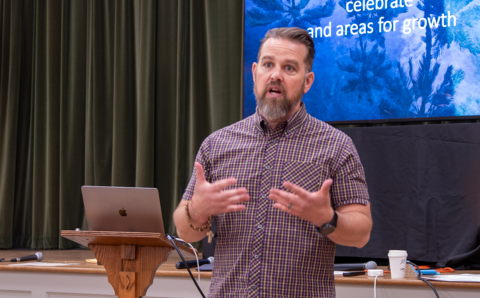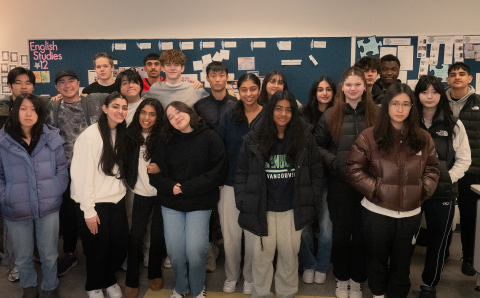Our church is doing more intergenerational ministry events. Don’t people learn best with their own age groups?
Historically, congregations did everything together. First-century house churches certainly had no specialized ministry for kids or teens or retired people. Some church historians say the trend for age-specific ministries started soon after World War II. The success of parachurch organizations like Young Life or Intervarsity Christian Fellowship caused the local church to begin to think about having separate ministries focused on particular age groups.
Some such ministries go back even further: the Sunday school movement began in England in the 1780s. But even that is relatively recent history. For centuries, people did church together.
Some separation makes sense, though. Imagine an adult group discussing why the Eastern Church split from the Roman Catholic Church in the year 1054. A group of elementary students would not get much from that discussion. But that example is about church education. The church is also interested in formation. Formation is different from education, although they are certainly related. While education is aimed at building knowledge, formation is aimed at helping people accept the promises made at their baptism and grow in their faith.
When people of different ages do life together, we all learn. Children learn from watching older siblings and parents do things. Psychologist Lev Vygotsky coined the phrase “zone of proximal development” to explain those areas where we are not able to do things on our own but can do so with support from others. Intergenerational ministry puts us in close proximity to those who are a bit further ahead in their faith walk than we are. These folks serve as examples as we together figure out what life in Christ looks like.
But this is not a one-way dynamic. Adults or seniors who spend time with children or teens also benefit from hearing their insights and questions. Well-planned and well-managed, intergenerational ministry is effective and a blessing to all involved.
About the Author
Laura Keeley is a former regional catalyzer in faith formation with Thrive, the ministry agency of the Christian Reformed Church. Robert Keeley is a professor emeritus of education at Calvin University. The Keeleys recently retired after 31 years as directors of children’s ministries at 14th St. CRC in Holland, Mich.









